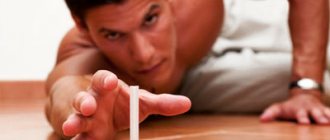Hot weather can be accompanied by loss of appetite, poor sleep, periodic weakness and other unpleasant sensations. Among the general precautions in the heat that experts advise to take to maintain health:
- wear a hat and clothes made of light fabrics outdoors;
- do not stay in the open sun for a long time, especially from 12 to 16 hours;
- Use sunscreen and protect your skin from direct sunlight.
There are also more specific recommendations on nutrition and drinking regime in hot weather. Gastroenterologist-nutritionist at our center Svetlana Igorevna Kovaleva shared tips to help improve well-being when the temperature outside reaches +30°C.
How much and what to drink in the heat?
People's specific daily fluid needs depend on age, weight, gender and amount of physical activity. They are also influenced by environmental factors that accelerate water loss through the skin, such as air temperature and humidity. As the temperature rises, the amount of fluid needed to restore fluid balance in the body increases.
On average, we lose 2 to 2.5 liters of fluid per day through sweating, breathing, urine and feces. Therefore, at normal temperatures we need about 6-8 glasses of water or other liquid. Higher air temperature and humidity increase the rate of evaporation from the surface of the skin, we sweat more, and we need to replenish our fluid levels more frequently. Therefore, on hot days, the need for liquid may increase to 3 liters.
The good news is that this goal can be achieved through a variety of sugar-free drinks, not just drinking water. Just keep in mind that caffeinated drinks have a diuretic effect, causing us to lose fluid, so in hot weather it is better to keep them to a minimum.
It is also important to keep in mind that drinking large amounts of fluid in a short period of time in hot weather is not beneficial. For most people with healthy kidneys, this problem usually resolves by urinating more frequently. But taking in too much water can cause your kidneys to be unable to maintain electrolyte balance, causing your blood to become very thin. This affects the functioning of our body, for example, lowering blood pressure levels.
Hyponatremia is a condition caused by drinking too much water, resulting in dangerously low sodium levels. Athletes who participate in competitions and drink too much fluid are more likely to develop this condition. Therefore, during regular exercise with high loads, it is better to use special sports drinks - isotonics - to restore the water-salt balance.
There are also medical restrictions according to which it is not recommended to consume a lot of fluid, as it can be retained in the body, leading to edema. This situation may occur if you have chronic kidney or heart disease. If you have any health problems or symptoms, contact your healthcare provider to determine your daily water intake.
Drinking alcohol in the heat is strictly not recommended; it not only dehydrates the body, but also increases the likelihood of heat stroke and worsening cardiovascular diseases, including heart attack or stroke.
What foods can help restore water loss?
Water contained in food makes up about 20-30% of the total volume of liquid we consume. Some foods, primarily vegetables and fruits, have a high water content. The highest indicators in this regard are:
- cucumber;
- zucchini;
- celery;
- iceberg lettuce;
- tomato;
- Bell pepper;
- strawberry;
- melon.
Recipes that are high in liquid can also help with hydration levels. Soups, stews, and cereals are good examples of meals, and of course, you can add healthy, seasonal ingredients like vegetables and fruits to them.
Can eating and drinking help us cool down?
Refreshing sorbet and ice cream seem like a natural choice when we want to cool down, but they can actually do more harm than good and make you feel extra thirsty due to the increased sugar content. Cold food may provide an initial cooling effect, but it is short-lived. This is because, firstly, consuming food leads to an increase in body temperature, as the process of digestion causes the release of heat. Secondly, our body will try to compensate for the rapid cooling due to cold food by additionally increasing our internal temperature. So we may end up feeling even hotter than we started out.
Drinking hot tea on a sunny day may seem like a strange idea, but in reality, such drinks can help regulate your body temperature. They raise our core temperature, which causes the body to cool down, causing us to sweat more and lose heat through the skin.
Which drinks quench your thirst best?
Most sugary drinks, and especially soda, are poor thirst quenchers and cause spikes in blood sugar levels and lead to excess sugar consumption. Freshly squeezed fruit juice or fruit smoothies are acceptable, but should be limited to 150 ml (1 glass) per day due to the fact that they contain many natural sugars, most of them fructose.
Chilled water with lemon is good for quenching thirst. You can also drink mineral water, which will replenish the minerals lost through sweat. Green tea is considered one of the best thirst-quenching drinks.
It is better to drink water that is too cold in small portions and small sips. For people with chronic diseases of the stomach and pancreas, too cold foods and drinks are contraindicated.
Overeat. How to help yourself after a feast
Whether it's a holiday for the whole country or a family feast, it's hard to resist trying everything! Often, the abundance of different foods does not have the best effect on the digestive system. What to do?
Often, after a festive feast, the stomach hurts, it hurts in the side, and intestinal function becomes disordered. In principle, we all roughly know what to do with this. For constipation, drink more water, eat more vegetables and boiled beets for a couple of days. For diarrhea, sit on boiled rice or oatmeal jelly, taking over-the-counter products such as activated carbon, enterosgel or smecta. For mild abdominal pain, we take over-the-counter medications. Severe or persistent abdominal pain is a reason to consult a doctor.
If there is a feeling of fullness in the stomach, for a couple of days we eat simple food without any frills - oatmeal, rice porridge, mashed potatoes, turkey breast broth. It seems that everything is logical: since you have eaten too much and overloaded the gastrointestinal tract, you need to unload.
When the usual methods don't help...
What to do if, despite the measures taken, discomfort, periodic pain and other frightening phenomena do not go away? You can’t do without a visit to a therapist or gastroenterologist! Overeating can cause gastritis (inflammation of the stomach), gastroduodenitis (inflammation of the stomach and duodenum), enteritis or colitis (inflammation of the small or large intestine). The risk of exacerbation is especially high if you already have chronic gastritis or duodenitis.
The most dangerous disease associated with the gastrointestinal tract is pancreatitis - acute inflammation of the pancreas. If acute pancreatitis develops, hospitalization in a hospital is required; treatment can be long.
To make a diagnosis and choose treatment, your doctor will have to do some tests, possibly an ultrasound of the abdominal cavity. Most laboratory tests are completed in 1-2 business days. In order not to waste time, you can get tested before visiting the doctor.
Where to begin?
It is worth excluding the most dangerous thing - inflammation of the pancreas. Two laboratory tests serve as markers for pancreatic dysfunction:
- Pancreatic amylase is an enzyme that digests carbohydrates from food. Its level in the blood becomes higher than normal, most often as a consequence of acute pancreatitis or during exacerbation of chronic pancreatitis. Therefore, the test is prescribed when there is suspicion of inflammation and damage to pancreatic cells.
- Lipase is a pancreatic enzyme responsible for the breakdown of fats. As a rule, this test is prescribed together with a pancreatic amylase test: an increase in both parameters can be a sign of acute pancreatitis.
What if there is indigestion?
After eating, your stomach swells, boils, pain and diarrhea begin...
In medicine, this is called “indigestion”; the cause may be insufficient production of enzymes. pancreas.
The Pancreatic Elastase 1 test in stool will show whether the pancreas secretes enough digestive enzymes. To do this, you need to independently collect the material in a sterile plastic container, which is sold in any pharmacy. The main thing is a little (up to 1/3 of the volume of the container) and from different parts of the feces collected for analysis.
The many faces of gastritis
Overeating can provoke an exacerbation of gastritis. As a rule, its root cause is the bacterium Helicobacter pylori. Therefore, for a full diagnosis of Helicobacter gastritis, it is worth doing one of two laboratory tests.
- The Antibody to Helicobacter pylori, IgG test will show whether the bacterium is present in the body. You can get it from dirty hands and poorly washed dishes. The source of infection is a sick person, and about 50% of people in the world are carriers of Helicobacter. Antibodies - protective proteins of the immune system - appear in the blood 3-4 weeks after infection. For the test, donate blood in the morning on an empty stomach or 3 hours after a small snack.
- The 13C urease breath test is a non-invasive, quick and inexpensive way to find out if you have Helicobacter pylori. It is needed if you have already been diagnosed with this bacterium and were prescribed treatment for gastritis with antibiotics. You will need to exhale air several times into sealed sterile bags. First simply, then drink 100 ml of citrus or apple juice (bring your own juice). The test is carried out in the morning on an empty stomach or 6 hours after a meal and takes 45-50 minutes.
Do not self-medicate, get tested and contact a gastroenterologist on time! This way you minimize the dangerous consequences of overeating.
What is better to exclude from the menu in the heat?
More filling foods high in protein, fat and/or sugar make us feel hotter. This happens because its digestion is accompanied by the release of more heat and an increase in body temperature. Therefore, in hot weather it is better to limit such food or replace it with other, less nutritious foods. It is also not recommended to eat a lot of ice cream, which contains a high percentage of fat and sugar and puts increased stress on the pancreas.
Fatty, smoked and fried foods create additional stress on the gastrointestinal tract. Therefore, to unload the body, it is better to use lean beef, turkey, chicken or fish, prepared by stewing, baking or boiling.
Include a variety of salads, dishes from fresh and cooked vegetables and fruits in your menu, but do not overdo it if you have not previously been in the habit of eating a lot of them. For people with a sensitive gastrointestinal tract, it is better to eat vegetables and fruits without peeling, raw vegetables, alternate with boiled, stewed or baked ones and not overuse okroshka made with kvass or kefir or beetroot.
Typical nutritional mistakes that lead to fatigue
The diet of an adult is most often an established phenomenon. We eat what we are used to. And of course we can change our preferences, but we need a good reason for this. Fatigue after eating is often a consequence of eating habits. And here are a few of those that really lead to a breakdown.
- Lack of balance
It is widely known that macronutrients (proteins, fats and carbohydrates) in the daily diet, at least approximately, must correspond to a certain norm. The average person needs 30% protein, 20% fat and 50% carbohydrates. Then the body will competently distribute energy to process food and borrow the same energy reserves from it. Along with nutrients. If the balance is not slightly disturbed, but too much, you may experience fatigue after eating.
For example, an excess of proteins is an excessive burden on the digestive system. Too much fat in the diet puts a strain on the liver and will sooner or later result in extra pounds on the buttocks or even obesity in the internal organs. But even carbohydrates in the diet are the path to extra pounds and slower mental activity, especially if the carbohydrates are quickly absorbed. Only a balanced diet can maintain optimal physical condition, mental activity and vigor. So, maintain an adequate combination of meat and fish, grains and dairy products, and, of course, fruits, vegetables, and nuts in your daily diet.
- Mess in food
It's not so much about an unbalanced diet, but about a chaotic one. Coffee and cookies for breakfast, a sandwich in a hurry instead of lunch, a late dinner that combines almost everything that could be distributed for the day. Of course, with such a diet, you will feel tired all day long. First due to an inadequate breakfast, then due to the lack of lunch as such, plus the heaviness from dinner. With such nutrition, the body will direct maximum energy to overcome evening food loads. At the same time, one cannot count on absorbing a sufficient amount of nutrients, vitamins and microelements.
- Insufficient drinking regime
In addition to all sorts of drinks consumed throughout the day, simple drinking water is not always given a significant place. A violation of the water-salt balance can manifest itself as chronic fatigue and depressive states. Metabolic processes are disrupted, internal structures are gradually destroyed, invisible to the naked eye, and physiological degradation occurs. It is important to get into the habit of drinking at least 1.5 liters of water per day, excluding coffee, teas, compotes, soups and other liquids. You need to treat this as due and necessary.
- Constant dieting
It depends on what you call a diet. If it's strictly following a balanced diet, fine. But if this is a constant effort to lose excess weight and maintain the result, then fatigue will become your companion.
Particularly unfavorable are mono-diets that are unbalanced in their composition. When they contain solid carbohydrates, or vice versa proteins. If you eat only vegetables/fruits, or fermented milk products, or cereals for several days or weeks, then along with the extra pounds, the charge of vigor will begin to leave you.
- Alcohol abuse
A lot can be said about the dangers of alcohol. As for the effect on the rise or fall of energy, even a small portion of alcohol can be enough to feel an attack of depression. The insidiousness of alcohol also lies in the unpredictability of its effects. If yesterday a glass of wine helped lift your mood, then tomorrow it can cause apathy. And even more so, a loss of strength should be expected the day after an alcoholic party, because the body will spend its energy reserve on restoring damaged nerve cells.
- Caffeine abuse
It would seem, what can you expect from a cup of coffee or energy drink, no matter how much energy there is? However, a good mood and increased performance usually occur in the first 20-60 minutes after a dose of caffeine. This is due to increased heart rate and blood flow. Then everything starts to decline, and after a few hours the body will also need strength to recover from the “impact work”.
- Fiber deficiency
The daily fiber requirement of an adult is estimated at 35 grams. Its content can be calculated in ordinary food products, and can be purchased as a dietary supplement. Fiber is necessary for the body to detoxify and prevent heart and digestive system diseases. Chronic fatigue is often a manifestation of intoxication and clogging of the body.
At the same time, we often get fiber of a very coarse structure from vegetables, fruits, and grains. In order for it to treat our digestive tract as carefully as possible, we need to maintain an active dietary regime.
- Dysbacteriosis
Very often people do not even realize that they have such a problem. Preventive measures are performed even less often. But it is a widely known fact that with intestinal diseases there is nothing to count on a strong immune system. Weak immunity is an excellent breeding ground for respiratory infections and chronic diseases of various locations. Against the backdrop of all this, a constant loss of strength and fatigue after eating will become your constant companions. If you want to feel a surge of energy after lunch or breakfast, try diversifying your diet with fermented milk products.
- Hypovitaminosis
Chronic fatigue can be caused by a lack of mineral salts (iron, potassium, calcium and phosphorus), and vitamins (C, group B), and even organic acids, pectins, and fiber. All this is found in abundance in fresh vegetables and fruits, unprocessed cereals. If, due to certain circumstances, you feel that such foods are not good in your diet, consult with your doctor about choosing a vitamin-mineral complex.
It is extremely important that foods from the daily diet also supply the body with antioxidants.
What precautions will protect against gastrointestinal problems?
At high air temperatures, food even in the refrigerator can spoil much faster, so you should not prepare food in excess. To cut down on meal prep time, freeze pre-cooked foods and then prepare fresh meals from them as needed.
Fruits and vegetables must be washed thoroughly, as hot weather promotes the growth of microbes that cause intestinal infections.
Use products with an expiration date and undamaged packaging, do not violate their shelf life. If the appearance, smell or taste of food is suspicious, it is better to refuse it. This especially applies to dairy products, baked goods with cream, and salads with mayonnaise, which are quickly perishable products.
2. Causes of loss of appetite
Natural causes of loss of appetite may be intoxication, high body temperature, viral and infectious diseases, blood pressure fluctuations, the first trimester of pregnancy or the first days of menstruation in women, taking certain medications, and hot weather. It should be remembered that such reasons only temporarily reduce appetite, and the feeling of hunger should be restored after leaving these states.
As a rule, you should be concerned about loss of appetite if there are no apparent reasons for this, and you don’t feel like eating for a week or more. You should be especially careful about refusing to eat if there are accompanying disorders: loss of interest in favorite activities, decreased sex drive, sleep disturbances, absent-mindedness, unmotivated crying and irritability.
The cause of loss of appetite can be various diseases:
- cardiovascular;
- diseases of the digestive system;
- oncological;
- vegetative-vascular;
- endocrine;
- autoimmune;
- liver diseases;
- severe mental disorders and dementia;
- lack of vitamin B, zinc and other micro- and macroelements;
- elderly age.
Visit our Gastroenterology page
Diet in the heat
Seasonal changes, including temperature and daylight hours, affect our appetite. Usually in the summer our appetite decreases, especially when we are hot. One reason for this is that the body tries to regulate our body temperature by reducing heat-producing functions, including food digestion. Although it is impossible to influence such a drop in appetite, we can use food containing the necessary nutrients and give up fast food and sweets.
To maintain a stable supply of nutrients to the body and maintain blood sugar levels, it is useful to follow a light diet. Breakfast remains an important and obligatory meal; during the day it is better to switch to light snacks, vegetable salads and soups. Dinner can be made more dense and high in calories, but eat no later than three hours before bedtime. Regular intake of food will prevent disturbances in the outflow of bile and ensure optimal functioning of the intestines without interruptions.
In the heat, the need for calories from food decreases. Therefore, the best choice is light food and small portions. Prepare fish and meat products or complex carbohydrates in the morning and evening. For lunch, vegetables, herbs, fruits and berries are preferable, as they are easier to digest. They can be supplemented with egg dishes, cheese or cottage cheese. Vegetable fats are preferable, for example, olive oil, they are distributed evenly throughout the day. The Mediterranean diet can be used as a model for eating in hot weather.
We hope that our tips will help you maintain good health in the heat and enjoy the hot summer.
If your health worsens and unpleasant symptoms appear, especially in the presence of chronic diseases, do not delay contacting a doctor, as exacerbation of diseases in the heat develops at an accelerated pace.
1.What is appetite?
Appetite
- This is a normal physiological phenomenon of a regular nature, caused by a feeling of hunger.
Appetite provides a replenishment of nutrients and reminds you to eat. Normally, a growing feeling of hunger brings such significant internal discomfort that it forces one to neglect other needs until food enters the body. Appetite can be general or specific. With a general appetite,
a person is ready to eat any edible food to satisfy hunger.
A specific appetite
is an urgent need for a specific product. The specifics of nutrition in general are always determined by a deficiency of certain substances, which is why you want to eat either meat or flour, or only vegetables or fruits, or just drink water.
Loss of appetite is often perceived as a good thing, especially by people who are overweight, very busy, or have limited means of livelihood. However, loss of appetite should not be taken lightly. Appetite is one of the important physiological indicators. Its change, just like a change in body temperature, pressure, respiratory rate or pulse, indicates a shift in the functioning of certain body systems.
Often, severe stress conditions cause a refusal to eat. It must be remembered that depletion and deficiency of micro- and macroelements greatly aggravate the psychological crisis and make it difficult to get out of it. If you know for sure that the cause of loss of appetite is painful experiences, you need to force yourself to eat in small portions, but regularly. In other cases, when there are no apparent causes, consultation and examination should be sought. These can be doctors: therapist, gastroenterologist, endocrinologist, nutritionist, psychiatrist.
The complex of all changes in appetite is called “dysrexia”
.
They can be expressed by a decrease in appetite, its sharp increase, perverted taste preferences or bulimia (absolute loss of the feeling of satiety). The most common appetite disorder, anorexia
, is a complete refusal to eat. Most often, anorexia occurs as a result of a strict diet and inadequate assessment of one’s weight and general condition. Refusal to eat is ensured first by volitional effort, and then, indeed, the feeling of hunger is completely lost, the body switches to internal nutrition, first using up the entire fat reserve, and then due to the degeneration of organs and tissues. This is a very dangerous condition; at a certain stage, a person with anorexia can no longer be saved.
A must read! Help with treatment and hospitalization!










